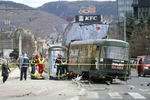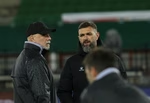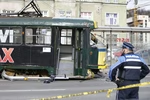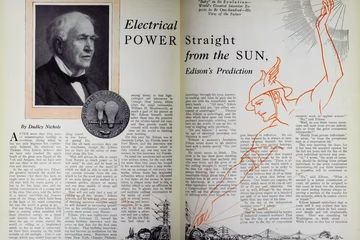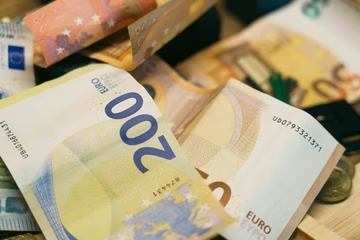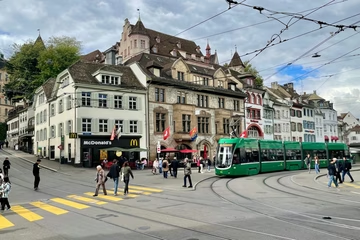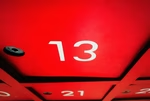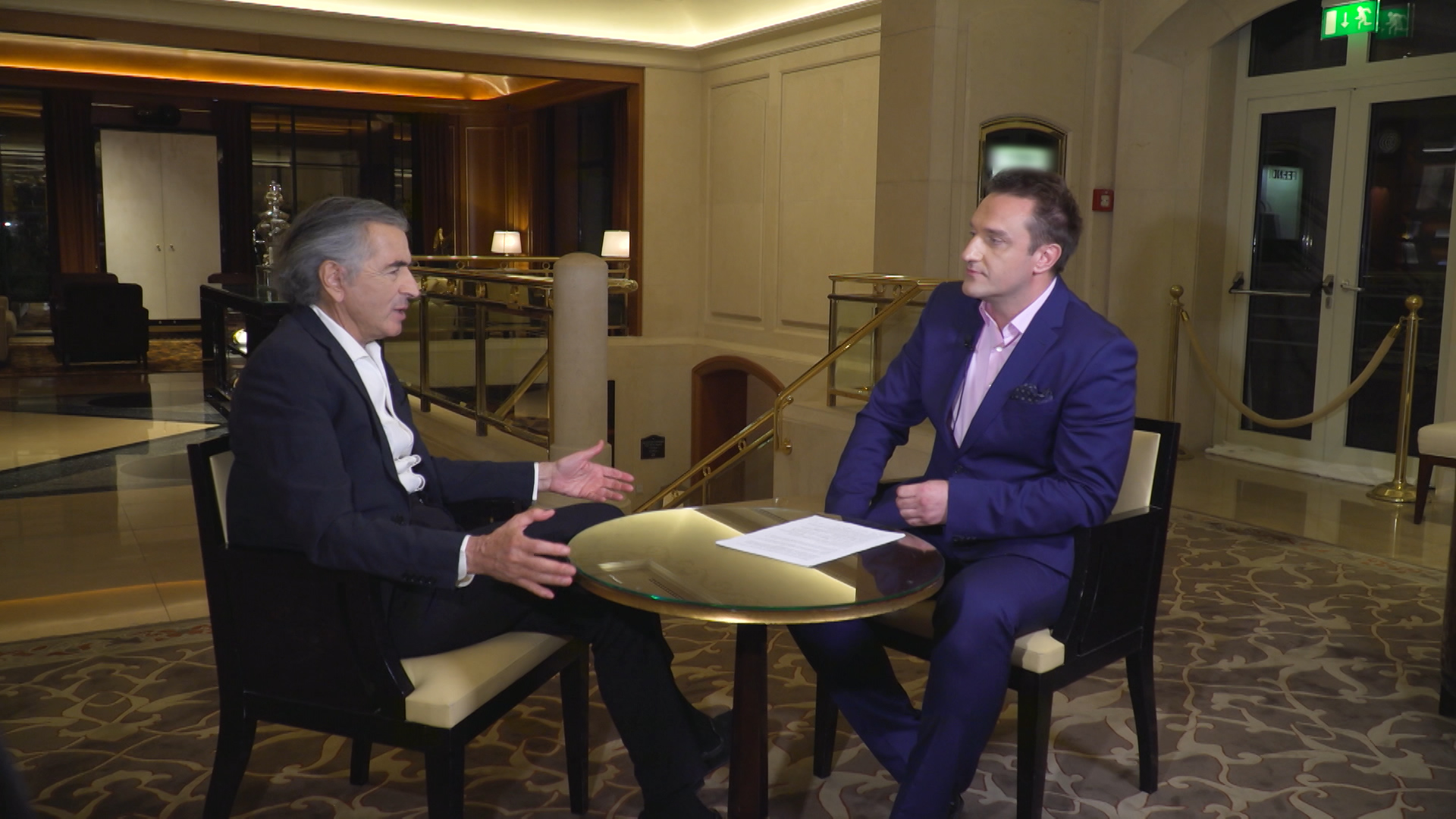
Bosnia is the embodiment of everything that is the best and worst in Europe - it embodies the spirit of citizenship and multi-ethnicity, but is also home to quarrels and conflicts among ethnic communities, Bernard-Henri Levy, a French public intellectual told N1's Amir Zukic, adding that Europe needs Bosnia because Europe believes ever less in its own values.
“Not only should Bosnia come into Europe, one day, but one of the main institutions should be displaced in Sarajevo. I really believe this,” Levy said. “I believe that because, roughly speaking, Europe itself, believes less and less in its own values and it’s often at the margin of Europe that people believe in the Grail.”
He argues that Ukrainians are more European than the people of Prague or Paris are. This is because there is an unfulfilled dream of Europe, he said.
Levy, who was in Prague performing his monologue “Looking for Europe,” said that the central message of this monologue is that Europe must not leave Bosnia because it has a debt to it.
“Europeans owe to Bosnia their lack of courage,” he noted, adding that they left Bosnia in the middle of massacres and attacks, which were easily preventable.
When N1’s Amir Zukic noted his impression that Levy believes in Bosnia more than its citizens do, the French intellectual said that sentiment is quite understandable.
“They are exhausted. When you believe for years and years and when nothing comes, when you are so strongly and deeply Europeans and when Europe turns its back on you – I understand that you are exhausted,” Levy said.
Then, he added, people drop everything and go on living day by day.
The French philosopher also commented on the EU’s preconditions and necessary reforms which Bosnia must undertake before becoming an EU member state saying too much and that no other country had to undergo such scrutiny.
When asked whether Bosnian Muslims could be a problem for Europe, Levy said this might be so, but that this would be a big mistake and a misunderstanding on EU’s behalf.
“Europe will live with Muslims, forever. It’s a fact,” he stressed.
According to him, Bosnia is interesting because it is home to democratic Islam, an enlightened Islam, an Islam that respects human rights and secularism.
“The big mistake for Europe is not to admit this area of the world and of the spirit in itself. It would have changed a lot of things. It would have put in minority the radical Muslims, it could have shown to all Muslims in Europe what is a possible democratic Islam,” Levy said for N1.
This would also show that Europe is against radicalism but not against Islam, that it is against fascism, but not against the Qur’an, he said.
Zukic mentioned that Levy is well respected in Sarajevo and much of the country, but not so much in Serbia where many politicians and intellectuals accuse him of being one of the biggest advocates of NATO intervention during the Balkan wars in the ’90s to which the French intellectual said he never asked for the bombing or Serbia or punishing of Serbs – he just wanted for the former Serbian President Slobodan Milosevic to be stopped.
“I asked for this since the beginning of the war in Bosnia and then during the Serb attacks on Muslims of Kosovo – I said that the arm of Milosevic had to be stopped by any means. If possible by diplomacy, if not then by force,” he said. “And I don’t regret it, but it does not mean that I’m not the friend of the Serbian people.”
Speaking about the Dayton Peace Agreement that ended the war in Bosnia, Levy said it was a lousy agreement from the beginning.
"Dayton was made not to have peace in the Balkans, but to for America to be in peace. ‘We make Dayton, we give them the keys of the mess, and we go away’,” he told N1.
He added that the Dayton Peace Agreement is an absolute category because it is the best was for them “not to hear any longer about these troublemakers in the Balkans, and especially the Bosniaks.”
N1’s Zukic asked Levy to comment on the newly formed commissions to probe the events that led to the Srebrenica genocide in 1995, when Bosnian Serb forces entered the UN’s protected zone of Srebrenica and killed more than 8,000 Bosniak men and boys in the course of several days, and the crimes against Serbs in Sarajevo.
“what I believe as a Jew, as a Frenchman, as a scholar is that revisionism, negationism, negating genocide is like the crime committed twice, and nothing for me is more insufferable, impossible to stand and to keep in mind that this idea of negating genocide. I hate this idea, and I will never lend my credit to any attempt of this sort,” Levi pointed out. “What you need is probably a real commission or symposium of experts on genocide. Independent, not linked with any foreign interest, analysing the situation very clearly and making the truth forever.”
Asked if Bosnia needs this, since international court verdicts proving genocide took place in Srebrenica in 1995, already exist, Levy said they are not enough.
“You have to engrave that in the marble, not only in international law. But what I would like is a summit of truth that would be held in Sarajevo, gathering some scholars, academics an specialists from all over the world, taking the time to study and finding the truth once and forever – without any possibility of denial.”
The period they would study would be from 1992 to 1995, he pointed out.
Since Levy is an outspoken critic of the Russian President Vladimir Putin, Zukic asked for his opinion on Putin’s support to Serbia and Bosnia’s Serb-dominated region of Republika Srpska, to which Levy said that the Bosnian Serb leader Milorad Dodik is just another puppet in line of Putin’s puppets in the world. These are also Hungary’s Viktor Orban, France’s Marine Le Pen and Italy’s Matteo Salvini, he noted, adding all these people are but Putin’s clones in Western Europe.
However, Levy concluded that Europe is strong enough to resist the latest wave of nationalism.
Kakvo je tvoje mišljenje o ovome?
Učestvuj u diskusiji ili pročitaj komentare





 Srbija
Srbija
 Hrvatska
Hrvatska
 Slovenija
Slovenija
















